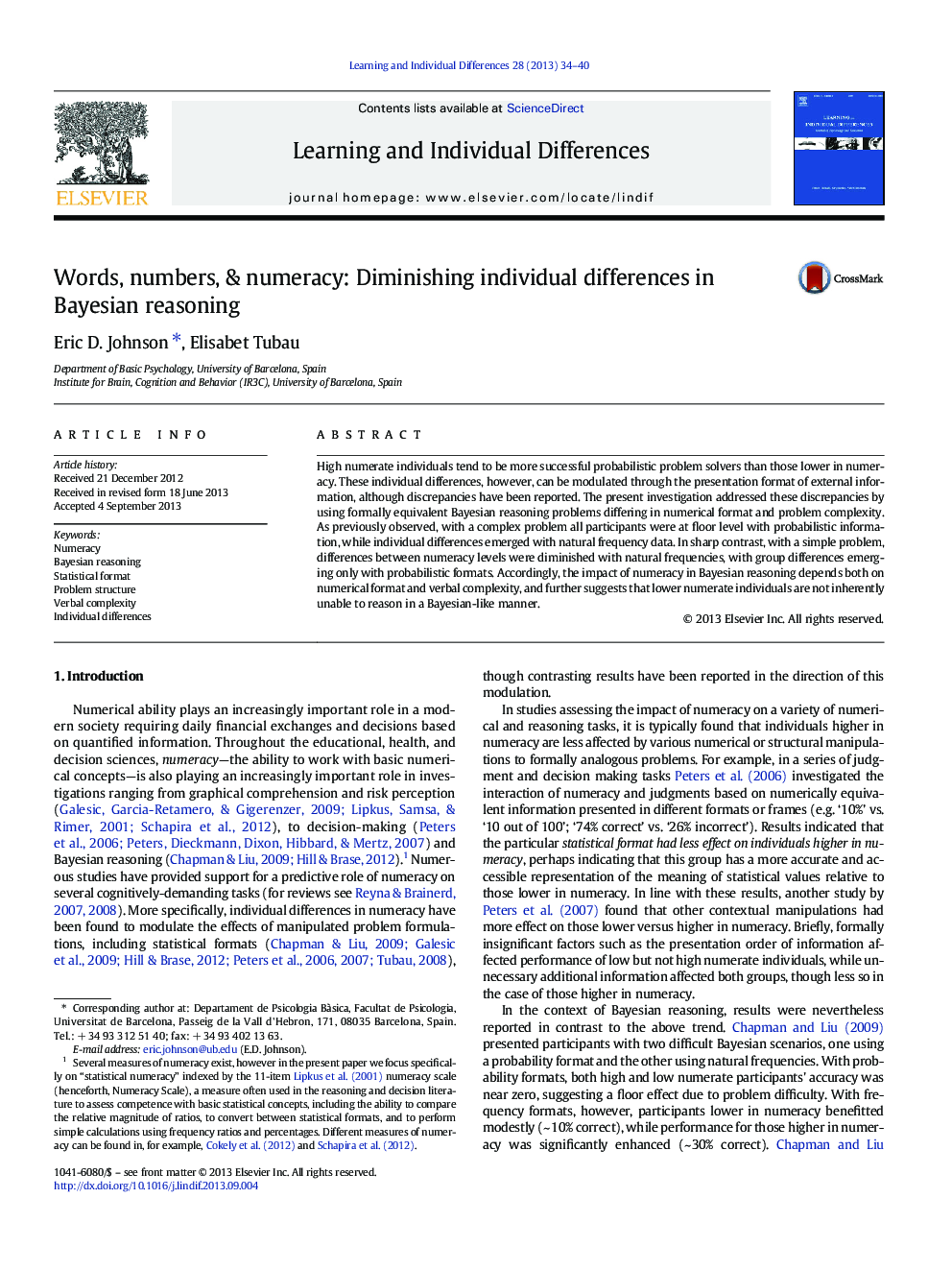| کد مقاله | کد نشریه | سال انتشار | مقاله انگلیسی | نسخه تمام متن |
|---|---|---|---|---|
| 364694 | 621083 | 2013 | 7 صفحه PDF | دانلود رایگان |

• Lower numerate individuals are not inherently unable to solve Bayesian problems.
• Lower numerate reasoners are more dependent on both numerical format and verbal complexity.
• The impact of numeracy diminishes with natural frequencies in a short, simple text.
• High numeracy necessary (though insufficient) for reasoning with probability formats.
High numerate individuals tend to be more successful probabilistic problem solvers than those lower in numeracy. These individual differences, however, can be modulated through the presentation format of external information, although discrepancies have been reported. The present investigation addressed these discrepancies by using formally equivalent Bayesian reasoning problems differing in numerical format and problem complexity. As previously observed, with a complex problem all participants were at floor level with probabilistic information, while individual differences emerged with natural frequency data. In sharp contrast, with a simple problem, differences between numeracy levels were diminished with natural frequencies, with group differences emerging only with probabilistic formats. Accordingly, the impact of numeracy in Bayesian reasoning depends both on numerical format and verbal complexity, and further suggests that lower numerate individuals are not inherently unable to reason in a Bayesian-like manner.
Journal: Learning and Individual Differences - Volume 28, December 2013, Pages 34–40